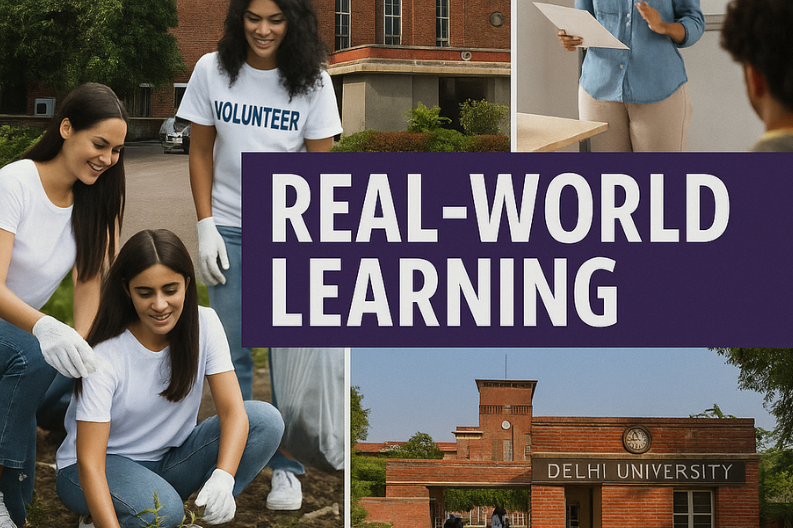Delhi University is reshaping education, and DU Brings Real-World Learning to Students by allowing them to earn course credits through practical experiences. This move, under the New Education Policy (NEP), is designed to shift learning beyond classrooms and provide hands-on opportunities.
Course Credits for Real Experiences
With the new guidelines, students from the third to sixth semesters can opt for internships, community service, or projects instead of traditional courses. This shift is helping students engage with real-world skills while addressing social challenges. Lady Shri Ram College for Women (LSR)has already emerged as a leader in implementing this initiative.
During the summer, LSR students dedicated 90 hours to volunteer work with NGOs, gaining exposure to pressing community issues. Acting Principal Kanika K Ahuja emphasized that such experiences foster empathy, responsibility, and civic awareness, making education more impactful.
Under this policy, course credits are now formally linked to internships and outreach efforts. Students must complete either 90 hours in one month or 60 hours spread across a semester. At the end of their work, they submit reports. And they deliver presentations, and attend viva exams, ensuring proper evaluation of their efforts.
Participation has grown significantly. LSR signed 28 MoUs with different organizations, engaging 116 students in internships and outreach. Currently, 120 are active in community service while 141 are pursuing internships. Despite some scheduling challenges, the initiative has been described as “revolutionary” by the college leadership.
Why This Matters
This approach is especially relevant in regions like Punjab, where youth unemployment is a concern despite relatively strong education indicators. The literacy rate in Chandigarh, for example, is higher than the national average, underscoring the importance of preparing students for future jobs.
The program not only equips students with experience but also builds resilience and adaptability. As more colleges adopt these practices, Indian higher education is moving closer to producing skilled and responsible citizens.
In conclusion, Delhi University’s bold reforms reflect a significant transformation in academic policy. With colleges like LSR leading the way, students are gaining recognition for their practical work and developing essential knowledge for future careers. By linking credits to real experiences, education becomes more meaningful, and DU Brings Real-World Learning to Students, showing a promising direction for the nation’s higher education system.



